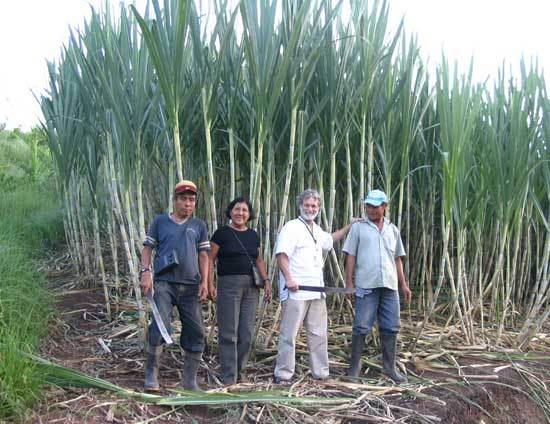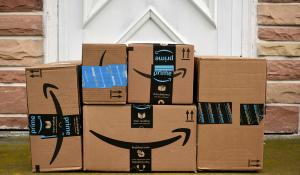
My colleagues Martha van Gelder and Tracy Fernandez Rysavy have been sharing their experience with kicking the sugar habit on this blog for the past week or so.
We’ve all been delving deeply into sugar issues recently, working to prepare “Sickeningly Sweet,” the latest issue of our Green American magazine, all about the American sugar habit, and its effects on our bodies and our health.
For my part, I confess to being a little stunned at the amount of sugar Americans consume per capita, partially because I don’t tend to consume that much sugar myself. I don’t keep any sugar-boosted foods in my house — no soda pop, no sugary breakfast cereals, no sweet treats like boxed cookies or or ice cream, and no processed snacks with hidden sugars. I don’t even put sugar in my coffee, and if a recipe calls for a bit of sweetness, I’m likely to either leave the sugar out, or replace with a few drops of organic honey, maple syrup, or molasses.
All that being said: I do have sugar in my house. I share an apartment with two other housemates, one of whom loves to bake. Among the staple foods lining the shelves of our kitchen, we’ve got a big metal can full of sugar. And while there are many staples that rarely cross our threshold unless they’re Fair Trade certified — coffee, rice, and olive oil come to mind — I’d never made a Fair Trade commitment for the sugar in my house until I researched the sugar supply chain for the Green American.
While much of the sugar consumed in the US was grown here, much of THAT sugar is controlled by Monsanto, and its patented genetically modified herbicide-resistant sugar beet. I don’t really want that kind of sugar in my home. Plus, sugar production worldwide can be tainted with various environmental and social ills, from the destruction of the Everglades in Florida, to labor-rights abuses in the Caribbean, Latin America, Africa, and Asia.
Looks like I’m going to need to add another Fair Trade choice to my household’s shopping list.
And while Fair Trade sugar can cost a little bit more than a conventional bag of cheap sugar from the supermarket, you know that the extra premium embedded in the price of that sugar is going to provide a decent living for farmers, environmental protections for their communities, and a better life for the children of farming families. Plus, if you’re trying to cut down on sugar for your health, paying true-cost for a bag of sugar can be a blessing. You could spend no more per month on sugar than before, but resolve to purchase only fairly traded, organic, GMO-free sugar. Your budget will go untouched, you’ll bring somewhat less sugar into your house to start with, and your spending will benefit people and the planet.
Here are some sources for Fair Trade, organic, & GMO-free sugar: Alter-Eco, Dean’s Beans, Frontier Natural Products, Grain Place Foods.
Subscribe to the Green American.
Your subscription helps power the work of our Fair Trade program,
GMO Inside program, Climate Action program, and more.

Dean Cycon (center right) of Dean’s Beans poses in the sugarcane fields in Peru with Esperanza Castilo (manager of the Pangoa cooperative), and with sugar farmers Miguel and Raul (far left and far right)






